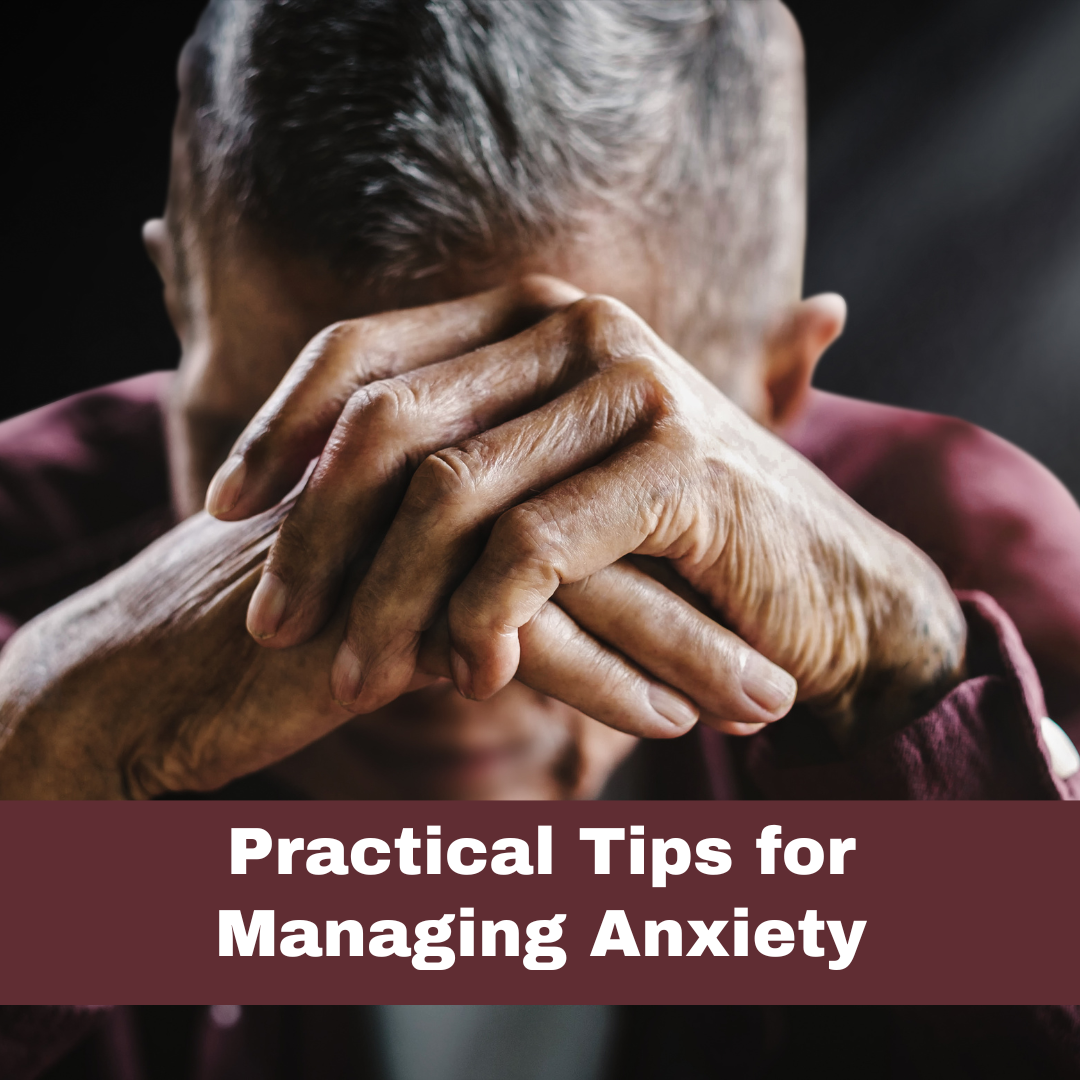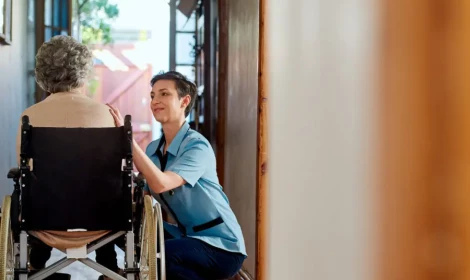Caring for a Loved One with Dementia: Practical Tips for Managing Anxiety
Caring for a loved one with dementia can be a challenging and emotional journey. As a caregiver, you play a crucial role in providing support and comfort to your loved one as they navigate the complexities of this progressive neurological condition. One common challenge faced by individuals with dementia is anxiety, which can manifest in various ways and significantly impact their well-being and yours. In this article, we will explore practical tips for managing your loved one's inevitable anxiety, understand why they experience it, and examine how your own anxiety as a caregiver can affect them.

Caring for a loved one with dementia can be a challenging and emotional journey. As a caregiver, you play a crucial role in providing support and comfort to your loved one as they navigate the complexities of this progressive neurological condition. One common challenge faced by individuals with dementia is anxiety, which can manifest in various ways and significantly impact their well-being and yours. In this article, we will explore practical tips for managing your loved one's inevitable anxiety, understand why they experience it, and examine how your own anxiety as a caregiver can affect them.
Anxiety is a common symptom experienced by individuals with dementia or Alzheimer’s and can be triggered by a variety of factors, including:
Cognitive Decline
As dementia progresses, individuals may experience memory loss, confusion, and difficulty understanding their surroundings. These cognitive changes can lead to feelings of uncertainty and fear, contributing to anxiety.
Environmental Changes
Any changes in the environment, such as moving to a new place, changes in routine, or unfamiliar faces, can trigger anxiety in individuals with dementia. They may struggle to adapt to new situations and feel overwhelmed by the unfamiliarity.
Loss of Independence
Dementia can gradually strip away a person's independence, leading to feelings of frustration, helplessness, and anxiety. Tasks that were once routine and effortless may become challenging, causing distress and anxiety.
Communication Difficulties
Individuals with dementia may have difficulty expressing their needs and understanding verbal cues. Certainly, most experience slower processing abilities and may also have lowered hearing ability. This can lead to feeling isolated and misunderstood, further exacerbating their anxiety.
As a caregiver there are strategies you can employ to help manage your loved one's anxiety and promote their well-being:
Establish a Calm and Familiar Environment
Create a soothing and familiar environment for your loved one by minimizing noise, clutter, and other potential stressors. Maintain a consistent daily routine to provide stability and predictability, which can help reduce anxiety.
Practice Effective Communication
First, slow your communication down. Provide time for your loved one to follow the conversation and process what you have shared or asked. Use clear, simple language and nonverbal cues to communicate. It can be helpful to comment on their emotions which can help them identify how they are feeling. For example, “Mom, it seems like you might feel nervous….” If your loved one's language skills remain intact, your ability to voice and hold space for their emotions can help them connect with their own emotions. Validate their feelings. Reassure them they are not alone.
Engage in Meaningful Activities
Encourage your loved one to participate in activities that they enjoy and find meaningful. Engaging in hobbies, music therapy, art therapy, or gentle exercise can help distract them from their worries and reduce anxiety. Loneliness and anxiety breed loneliness and anxiety. As the disease progresses, they will need more help initiating activity.
How Caregiver Anxiety Affects Your Loved One:
It is essential to recognize that as a caregiver, your own anxiety and stress can impact your loved one’s stress.
Emotional Contagion
Individuals with dementia are highly attuned to the emotions of those around them and may notice your anxiety and stress. If you are feeling anxious, your loved one may mirror those emotions, leading to increased agitation and distress for you both. They may not be able to articulate it but if your loved one feels extra stressed or anxious, check in with yourself regularly. Is your loved one picking up on your emotions?
Reduced Quality of Care
Caregiver anxiety can impair your ability to provide effective care. When you are feeling overwhelmed or anxious, you may be less patient, attentive, and compassionate, which can negatively impact your loved one's well-being. Chronic caregiver stress and anxiety can strain your relationship with your loved one, leading to increased tension and conflict. This can further exacerbate their anxiety and make it challenging to maintain a supportive and nurturing environment.
Managing Caregiver Anxiety
Taking care of your own mental and emotional well-being is essential for effectively caregiving. Reach out to friends, family members, or support groups for emotional support and encouragement. Talking to others who understand what you are going through can provide validation and comfort. It may be difficult, but maintain connection to your life outside of caregiving and dementia. Accept that you cannot control dementia nor provide perfect care. Set realistic expectations for yourself. Give yourself time to rest and recharge by taking regular breaks from caregiving duties. Enlist the help of other family members, friends, or respite care services to give yourself a much-needed break.
In conclusion, caring for a loved one with dementia requires patience, compassion, and understanding. By implementing practical strategies to manage anxiety and taking care of your own well-being, you can create a supportive and nurturing environment that promotes your loved one's overall quality of life. Remember that you are not alone, and there are resources available to help you navigate this challenging journey.





